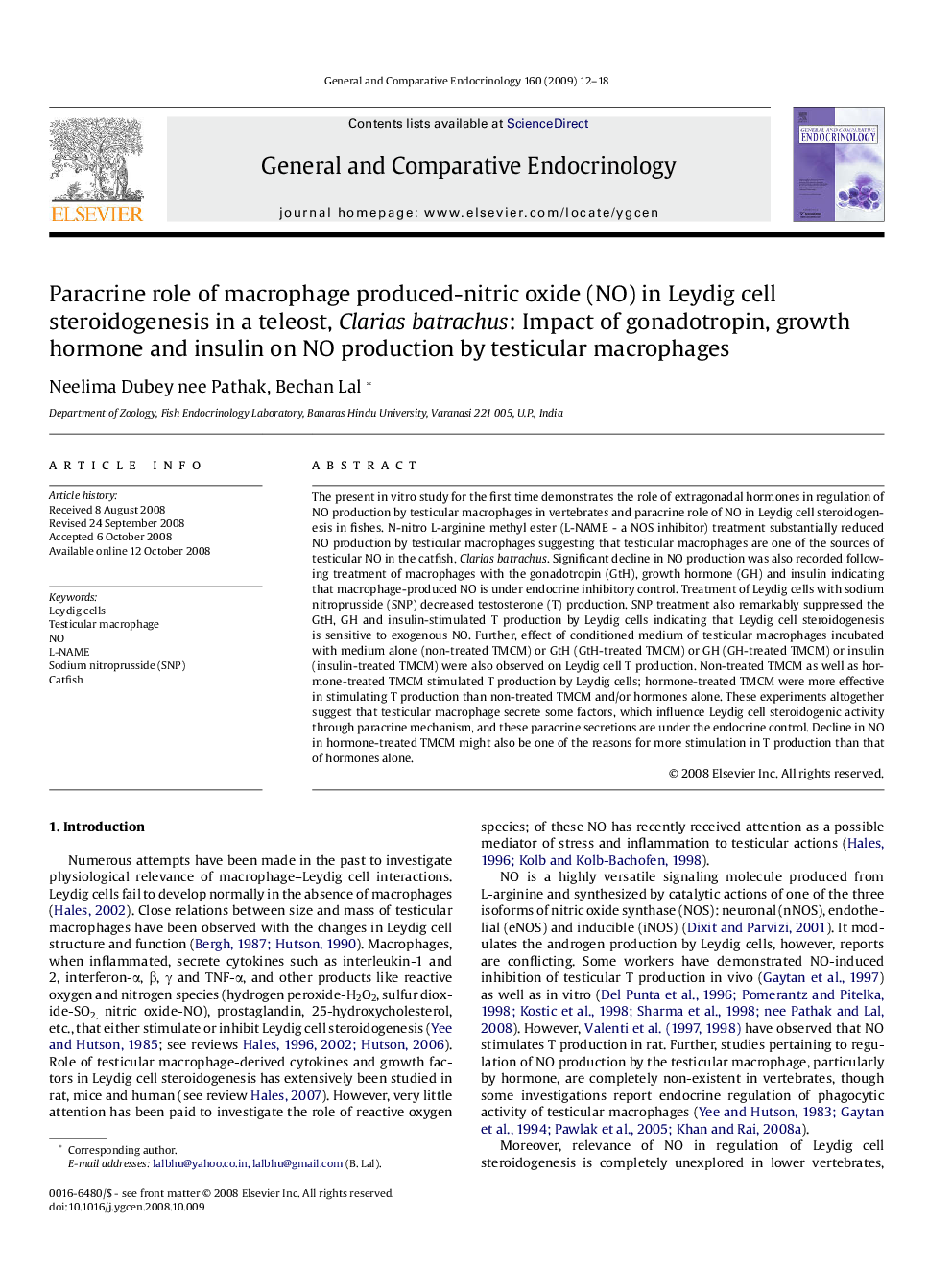| Article ID | Journal | Published Year | Pages | File Type |
|---|---|---|---|---|
| 2801714 | General and Comparative Endocrinology | 2009 | 7 Pages |
The present in vitro study for the first time demonstrates the role of extragonadal hormones in regulation of NO production by testicular macrophages in vertebrates and paracrine role of NO in Leydig cell steroidogenesis in fishes. N-nitro L-arginine methyl ester (L-NAME - a NOS inhibitor) treatment substantially reduced NO production by testicular macrophages suggesting that testicular macrophages are one of the sources of testicular NO in the catfish, Clarias batrachus. Significant decline in NO production was also recorded following treatment of macrophages with the gonadotropin (GtH), growth hormone (GH) and insulin indicating that macrophage-produced NO is under endocrine inhibitory control. Treatment of Leydig cells with sodium nitroprusside (SNP) decreased testosterone (T) production. SNP treatment also remarkably suppressed the GtH, GH and insulin-stimulated T production by Leydig cells indicating that Leydig cell steroidogenesis is sensitive to exogenous NO. Further, effect of conditioned medium of testicular macrophages incubated with medium alone (non-treated TMCM) or GtH (GtH-treated TMCM) or GH (GH-treated TMCM) or insulin (insulin-treated TMCM) were also observed on Leydig cell T production. Non-treated TMCM as well as hormone-treated TMCM stimulated T production by Leydig cells; hormone-treated TMCM were more effective in stimulating T production than non-treated TMCM and/or hormones alone. These experiments altogether suggest that testicular macrophage secrete some factors, which influence Leydig cell steroidogenic activity through paracrine mechanism, and these paracrine secretions are under the endocrine control. Decline in NO in hormone-treated TMCM might also be one of the reasons for more stimulation in T production than that of hormones alone.
